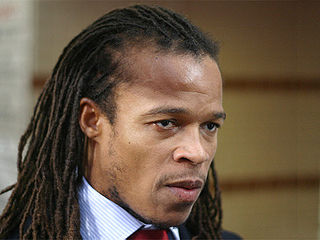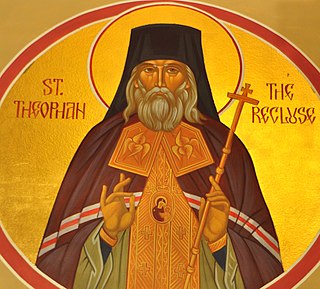A Quote by Thomas Aquinas
We ought to cherish the body. Our body's substance is not from an evil principle, as the Manicheans imagine, but from God. And therefore, we ought to cherish the body by the friendship of love, by which we love God.
Related Quotes
You have to stand up and be a human. You have to honor the man or woman that you are. Respect your body, enjoy your body, love your body, feed, clean, and heal your body. Exercise and do what makes your body feel good. This is a puja to your body, and that is a communion between you and God. . . . When you practice giving love to every part of your body, you plant seeds of love in your mind, and when they grow, you will love, honor, and respect your body immensely.
In fact, whenever energy is transmitted from one body to another in time, there must be a medium or substance in which the energy exists after it leaves one body and before it reaches the other ... and if we admit this medium as an hypothesis, I think it ought to occupy a prominent place in our investigations, and that we ought to endeavour to construct a mental representation of all the details of its action, and this has been my constant aim in this treatise.
Numerous Christians do not know how to glorify God in their eating and drinking. They do not eat and drink simply to keep their body fit for the Lord's use but indulge to satisfy their personal desires. We should understand that the body is for the Lord and not for ourselves; hence we should refrain from using it for our pleasure. Food ought not hinder our fellowship with God since it is to be taken purely to preserve the body in health.
The chief evil with relation to the body is love for the body and pitying it. This takes away all the soul's authority over the body and makes the soul the slave of the body. And on the contrary, one who does not spare the body will not be disturbed in whatever he does by apprehensions born of blind love of life. How fortunate is one who is trained to this from childhood!
Get rid of the bondage of body; we have become slaves to it and learnt to hug our chains and love our slavery; so much so that we long to perpetuate it, and go on with "body" "body" for ever. Do not cling to the idea of "body", do not look for a future existence in any way like this one; do not love or want the body, even of those dear to us.
Greatly ought we to rejoice that God dwells in our soul; and more greatly ought we to rejoice that our soul dwells in God. Our soul is created to be God’s dwelling place, and the dwelling of our souls is God, who is uncreated. It is a great understanding to see and know inwardly that God, who is our Creator, dwells in our soul, and it is a far greater understanding to see and know inwardly that our soul, which is created, dwells in God in substance, of which substance, though God, we are what we are.
It is God's earth out of which man is taken. From it he has his body. His body belongs to his essential being. Man's body is not his prison, his shell his exterior, but man himself. Man does not "have" a body; he does not "have" a soul; rather he "is" body and soul. Man in the beginning is really his body. He is one. He is his body, as Christ is completely his body, as the Church is the body of Christ
We came to this earth that we might have a body and present it pure before God in the celestial kingdom. The great principle of happiness consists in having a body. The devil has no body, and herein is his punishment. He is pleased when he can obtain the tabernacle of man. . . . All beings who have bodies have power over those who have not.
...it is proper that the duty of helping the poor and unfortunate should especially stir Catholics, since they are members of the Mystical Body of Christ. In this we have come to know the love of God, said John the Apostle, that He laid down His life for us, and we likewise ought to lay down our life for the brethren. He who has the goods of this world and sees his brother in need and closes his heart to him, how does the love of God abide in him? (1Jn 3:16 17)



































